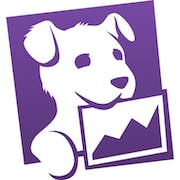As businesses become increasingly reliant on technology, the need for efficient IT management and monitoring systems becomes more critical than ever. IT management software is the solution to this problem. Companies with this software can streamline IT management, improve security, and optimize business processes. However, with so many IT management software choices available, purchasing the right solution can be a daunting task. This IT management software buyer's guide will assist you in making an informed decision by providing you with the necessary information to choose an IT management software that meets your unique business needs. With our expert advice and unbiased reviews of the top IT management software on the market, we'll help you make a decision that's right for your business. So, let's dive in and empower you to choose an IT management software solution with the confidence you need to focus on running your business.
What is IT Management Software
IT Management Software is an essential tool for businesses that handles various aspects of IT management such as monitoring, automation, and reporting. It enables organizations to streamline their processes, reduce costs, and enhance operational efficiency by managing IT infrastructure, applications, and services. Common use cases for IT management software include: - Network monitoring and management - Performance and resource monitoring - IT asset management - Incident and problem management - Change management - Security and compliance management Companies that use IT Management Software usually range from small to large enterprises that have complex IT systems, such as banks, healthcare providers, and manufacturing companies. However, IT Management Software is now being utilized by organizations across various industries that rely on technology for their daily operations. An effective IT Management Software must have features that include ease of use, scalability, flexibility, and the ability to integrate with other systems or applications. It should also provide real-time data analysis and reports, cloud-based deployment options, and have customizable dashboards. Choosing the right IT Management Software can help businesses to optimize their IT processes and gain a competitive edge in the market.
Benefits of IT Management Software
As businesses grow, so does the amount of data they generate and store. On top of that, the need for digital transformation makes it crucial for businesses to adopt IT Management Software to keep pace with the rapid technological changes happening in the world. Here are the main benefits of IT Management Software for businesses: - Increased Efficiency: IT Management Software can automate repetitive tasks and streamline workflows, resulting in increased productivity, greater efficiency, and less time wasted on manual labor. - Enhanced Security: Cybersecurity threats continue to rise, making IT Management Software an essential tool for safeguarding sensitive business information and systems from unauthorized access and cyber-attacks. - Better Decision Making: IT Management Software allows you to collect and analyze data that can improve decision-making processes, enabling you to make informed business decisions that can positively impact productivity and growth. - Improved Customer Satisfaction: With IT Management Software, you can track customer interactions and gain insights from customer data, enabling you to provide a more personalized experience for your customers, leading to higher satisfaction and retention rates. - Cost Savings: By automating processes, reducing errors, and ensuring efficient use of IT resources, IT Management Software can significantly reduce costs associated with manual labor. IT Management Software can be a game-changer for businesses that want to thrive in today's rapidly changing marketplace by improving productivity, facilitating better decision-making, and ultimately enabling long-term growth.
Features of IT Management Software
IT management software is an essential tool that aids businesses in managing their technology infrastructure and ensuring smooth operations. This software is designed to automate and streamline various IT activities, from network monitoring to software deployment, and everything in between. Here are ten of the most common features that you can expect to find in IT management software: 1. Network monitoring: This feature allows businesses to keep track of their networks' health and performance. It provides real-time visibility into network traffic, device status, and overall network health. 2. Patch management: Keeping software up-to-date is crucial for maintaining security and preventing cyberattacks. Patch management software identifies and installs missing patches across an organization's network. 3. Software deployment: This feature simplifies and automates the process of installing software across multiple computers. It can save businesses significant time and resources by eliminating the need to manually install software on each computer. 4. Remote access: IT management software enables remote access, allowing IT personnel to access and troubleshoot computers and devices regardless of location. This feature is particularly useful for businesses with remote employees or offices. 5. Asset management: This feature provides a comprehensive view of an organization's hardware and software assets. It can help businesses keep track of their technology inventory, identify unused or underutilized resources, and manage software licenses. 6. Data backup and recovery: Losing critical data can be disastrous for businesses. IT management software helps organizations back up data automatically and provides an efficient way to recover data in case of a failure or disaster. 7. Security management: IT management software can help businesses identify and remediate security vulnerabilities across their networks. It can provide real-time alerts and automatic remediation for potential threats. 8. Reporting and analytics: IT management software provides comprehensive reports and analytics on various aspects of an organization's technology infrastructure. This information can help businesses make informed decisions about resource allocation, budgeting, and strategy. 9. Help desk and ticketing: This feature provides businesses with the ability to manage support requests and track issues. It can help organizations prioritize and resolve support issues more efficiently. 10. Mobile device management: With the growing use of mobile devices in the workplace, mobile device management has become increasingly important. IT management software can help businesses manage and secure mobile devices, enforce policies, and monitor usage. In summary, IT management software provides businesses with a wide range of capabilities that can simplify and automate various IT activities, save time and resources, and improve overall technology infrastructure management. By understanding these features, organizations can better evaluate their IT management software needs and select the right solution for their business.
Considerations of IT Management Software
When it comes to purchasing IT management software, businesses should consider several factors to make the right choice. First and foremost, it's crucial to determine the specific needs and goals of the organization's IT department. The software should align with the company's overall strategy, IT policies, and governance requirements. It should also meet the organization's scalability and integration standards. The software's functionality is another key factor to consider. An IT management software should provide comprehensive features such as asset management, network monitoring, remote control, and helpdesk support. It should also have robust reporting capabilities, workflow automation, and customization options that cater to the specific needs of the organization. Ease of use and user experience play a significant role in the software's effectiveness. It should have a user-friendly interface, intuitive navigation, and a short learning curve that allows users to access all its features with ease. The software should also have 24/7 customer support and responsive technical assistance to troubleshoot any issues promptly. Security is another crucial aspect to consider. IT management software should have robust security features that protect the organization's sensitive data from threats such as malware, hackers, and cyber-attacks. The software should also have data backup and disaster recovery options to ensure business continuity in case of any system failures. Cost is undoubtedly a significant factor for any business. However, organizations should not compromise quality over price. Investing in a high-quality IT management software is crucial for the smooth running of the IT department and, consequently, the overall performance of the business. It's essential to evaluate the total cost of ownership over time rather than the short-term upfront cost. In conclusion, businesses should consider several factors when purchasing IT management software. These include specific needs, functionality, ease of use, security, and cost. Investing in a high-quality IT management software that meets the needs and goals of the organization's IT department can have a significant impact on the overall performance and success of the business.
Software Trends for IT Management Software
IT management software is evolving rapidly, and companies need to stay on top of the latest developments to remain competitive. Here are some of the top trends to watch out for in 2023 and beyond: 1. Cloud-based systems: Cloud computing is rapidly becoming the preferred method of software delivery, and for good reason. It allows for secure and scalable access to files from any device with an internet connection, which is especially important for remote workforces. 2. Mobile-friendly platforms: With more professionals working remotely and being on-the-go, it is important for software to be accessible from mobile devices. Mobile-friendly software will ensure that employees can access important documents and collaborate with colleagues even when they are away from their desks. 3. Social integration: Social media platforms are playing an increasingly important role in business, and software development is no exception. Social integration allows users to interact with content and easily search for files, improving productivity and collaboration. 4. Customer portals: Providing clients with access to project documents is becoming increasingly popular, and customer portals are an effective way to do this. They allow clients to contribute to projects and access important files in a secure and straightforward way. 5. Collaboration software: Collaboration is an essential component of productivity and is becoming a core aspect of software development. Workflow and project management software is increasingly being developed with collaboration in mind, allowing teams to work together in a streamlined and efficient manner. By keeping up with these trends, businesses can improve productivity, enhance customer satisfaction, and achieve overall success.






